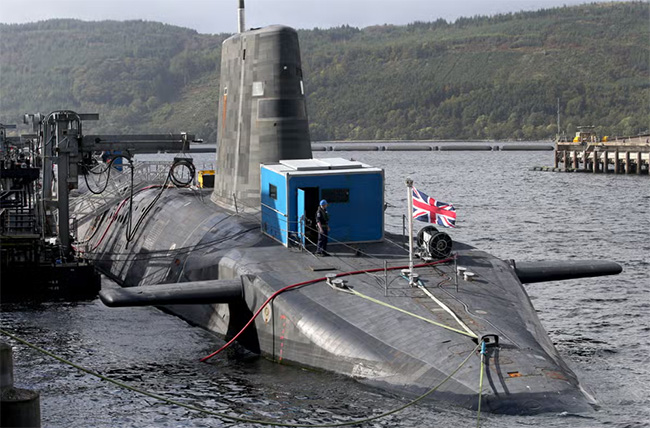Photo: Sky News
The Royal Navy has suffered a serious drop in recruitment that could hamper its ability to fight at sea and even crew the nuclear deterrent unless fixed, defence sources have warned.
One Britain source described the situation as a "general collapse" in the flow of new recruits into the service, but the navy rejected this characterisation, while conceding there was a challenge, Sky News ingorms.
Seeking ways to reverse the decline, navy chiefs are considering options to accelerate recruits into training, including potentially inviting some forward on to initial courses before they have passed all their security checks, one source said.
"Previously, the Navy has used this for one or two [recruits] – not the hundreds they need now," the source said.
The recruitment woes are thought to have been triggered over the past 18 months by what the defence sources described as a "perfect storm" of negative factors, including:
- A shortage of up to 35% of recruitment staff in some areas of the UK as navy reservists who fill the role have quit "in droves" because of concerns about job security.
- A wider failure by the government to ensure armed forces pay keeps up with inflation, making the offer to join the navy, army, and RAF less competitive.
- An increasing number of sailors quitting the service. Poor retention has put more pressure on the need to recruit because "outflow" is outstripping "inflow".
"The Royal Navy is witnessing the general collapse of recruitment," the Defence source said, speaking on condition of anonymity to discuss the topic frankly.
"In some areas, the Royal Navy teams tasked with recruitment have shortages of up to 35% in their workforce – for instance in Greater London, one of the biggest recruitment areas. This is making it difficult to service all applications in an efficient manner."
The source said: "As the smallest service – workforce wise, with some truly unique trades, connected mainly to submarines – failure in recruitment will have strategic implications at some point in the near future."
Gaps in recruitment teams are also being experienced in Scotland – a key recruiting ground for submariners who are vital to operate the UK's four nuclear-armed submarines (photo).
 Photo: ‘Evening Standard’
Photo: ‘Evening Standard’
These boats deliver the nuclear deterrent – a cornerstone of UK security – with one submarine always at sea 24 hours a day, 365 days a year.
"It's a mess," a second defence source said, also speaking anonymously.
Admiral Sir Ben Key, the First Sea Lord, took the unusual step last month of admitting in a magazine interview that the Submarine Service was not "awash with people".
Official Ministry of Defence data, released last month, showed all three services were struggling with recruitment, but the navy – with a full-time force of just over 29,000 personnel – performed the worst.
Intake in the 12 months to March 2023 plunged 22.1% for the Royal Navy and the Royal Marines compared with a year earlier. For the army, it was down 14.6% year-on-year, and it dropped 16.6% for the Royal Air Force.
This May's intake saw a mere 55 officers signing up at Dartmouth out of a capacity of 175. The course ended up being bulked up by recruits who had failed in the previous term and some international students.
"It's frankly desperate," said a third Defence source.
Recruitment teams have been experiencing a period of uncertainty as the navy, army and RAF prepare to evolve their respective operations into a planned new scheme called the Armed Forces Recruitment Programme – a move that has been beset by delays.
"This programme and its changing timelines is really disruptive for the Naval Careers Service, they have no job security or understanding of where their future lies," the first source said. "They are therefore leaving in droves…”
Expectations are for a below-inflation pay rise, which equates to a real-terms pay cut and makes a career in the navy, army, or RAF less attractive, defence sources said.
This is a factor prompting more serving sailors to leave, making the need for a healthy recruitment stream all the more urgent.
"We're in the eye of the storm," one of the sources said.
Former navy officers expressed concern. They said recruitment difficulties were a global trend among navies – with young people less willing to listen to authority, work in a hierarchical environment and – particularly in the case of submariners – be disconnected from technology and the internet for long periods of time.
read more in our Telegram-channel https://t.me/The_International_Affairs

 12:33 18.07.2023 •
12:33 18.07.2023 •























